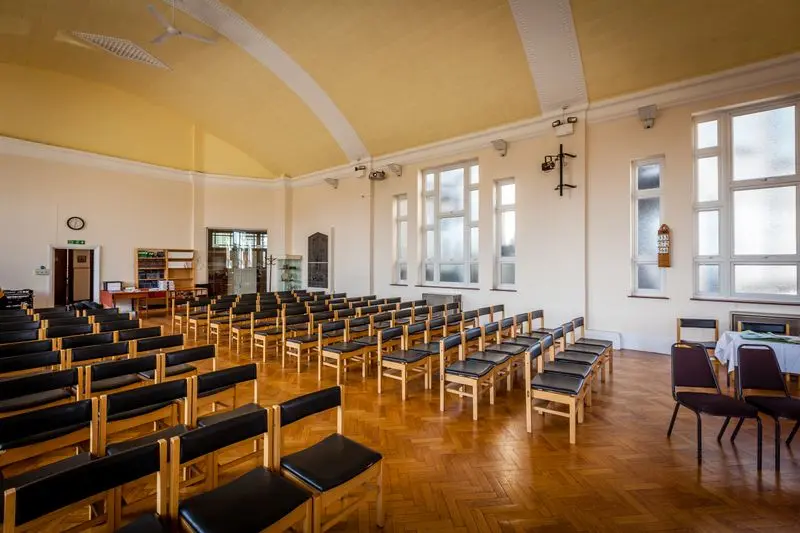unconventional learning how gap years and travel educate beyond the classroom
Opinino
By published

Unconventional Learning: How Gap Years and Travel Educate Beyond the Classroom
In recent years, more students and young professionals are choosing unconventional paths like gap years and travel to enrich their learning experiences. Stepping outside of traditional education and immersing oneself in diverse environments offers valuable insights, practical skills, and personal growth that textbooks alone cannot provide. This article explores the benefits of gap years and travel as powerful forms of education beyond the classroom.
The Educational Value of a Gap Year
A gap year, often taken between high school and college or during college breaks, is a period of time spent exploring new experiences and gaining real-world skills. Unlike the structured path of traditional schooling, gap years offer a self-directed approach to learning.
Benefits of Taking a Gap Year
Practical Experience: Many students use gap years to intern, volunteer, or work, gaining hands-on experience in their chosen field.
Improved Self-Confidence: Facing unfamiliar situations and meeting new people encourages self-confidence, resilience, and adaptability.
Clarity and Focus: By taking time to explore various interests, students can return to school or work with clearer goals and a stronger sense of purpose.
Cultural Immersion: Living in another country or culture teaches valuable lessons in tolerance, empathy, and global awareness.
Popular Gap Year Activities
Volunteering: Working with nonprofits in fields like conservation, education, or healthcare is a rewarding way to give back while learning.
Internships and Apprenticeships: Many organizations offer short-term roles for gap-year students to gain industry-specific experience.
Language Study: Immersing oneself in a new language is an invaluable skill for future travel, career growth, and cross-cultural understanding.
Personal Projects: A gap year can also be used to pursue personal interests like writing a book, building a portfolio, or working on an entrepreneurial project.
Academic and Career Impact
Studies have shown that students who take gap years often perform better academically and are more likely to complete their degrees. Additionally, employers value the maturity, independence, and adaptability that gap-year students bring to the workforce.
How Travel Educates Beyond the Classroom
Travel is a unique form of education that allows individuals to experience the world firsthand. Beyond sightseeing, travel fosters a deeper understanding of cultures, histories, and global issues, offering transformative lessons that can only be learned through immersion.
Key Learning Experiences from Travel
Cultural Awareness and Sensitivity: Experiencing different customs, languages, and traditions firsthand develops empathy and a more open-minded approach to the world.
Language Skills: Learning and practicing new languages enhances cognitive flexibility and makes it easier to connect with diverse communities.
Problem-Solving and Adaptability: Navigating a new environment, managing travel logistics, and adjusting to unexpected changes builds resilience and problem-solving skills.
Global Perspective: Exposure to different political, economic, and environmental challenges broadens one’s understanding of global issues, fostering a more well-rounded worldview.
Educational Activities While Traveling
Cultural Exchanges: Participate in local customs, festivals, and activities to gain a deeper appreciation for the community.
Historical Exploration: Visit museums, monuments, and historical sites to connect with the history and heritage of a place.
Environmental Awareness: Spend time in natural settings, engage in eco-tourism, and learn about conservation efforts in different parts of the world.
Humanitarian Work: Volunteering abroad in areas like education, healthcare, and community development allows travelers to contribute positively while learning about complex social issues.
Developing Essential Life Skills Through Travel
Travel teaches essential life skills that can be applied in both personal and professional contexts:
Budgeting and Financial Management: Managing travel expenses and living within a budget improves financial literacy.
Communication Skills: Learning to communicate across language barriers and cultural differences enhances interpersonal skills.
Time Management: Coordinating schedules, flights, and travel plans helps build planning and time-management skills.
Gap Year vs. Travel: Choosing What’s Right for You
While gap years and travel both offer rich educational experiences, choosing the right path depends on individual goals, resources, and preferences.
Gap Year
Structured and Goal-Oriented: Often involves specific goals like internships, language study, or volunteer projects.
Work and Internship Focused: Gap years can provide practical experience directly related to future academic or career paths.
More Time-Intensive: A gap year is typically longer than a standard travel period, allowing for more in-depth experiences.
Travel
Flexible and Spontaneous: Travel can be less structured, with more room for spontaneous exploration and adventure.
Cultural Immersion: For those interested in exploring multiple cultures and regions, travel provides a broader scope of experiences.
Shorter Duration Options: Travel can be as short as a few weeks, making it a feasible option for those who can’t commit to a full year.
Blending the Two
For those interested in both, combining a gap year with travel is a popular option. For example, you might spend a few months volunteering abroad, followed by a period of independent travel. This approach allows for both focused learning and personal exploration.
Tips for Making the Most of a Gap Year or Travel Experience
Whether you choose a gap year, travel, or a mix of both, here are some tips to maximize your learning and personal growth:
1. Set Clear Goals
Identify Learning Objectives: Define what you want to achieve, whether it’s gaining work experience, mastering a language, or exploring personal interests.
Stay Open to Change: Allow room for spontaneity and growth, even as you work toward your goals.
2. Budget Wisely
Plan for Expenses: Estimate travel, accommodation, and food costs, and set a budget to keep your finances in check.
Consider Work-Travel Programs: Some countries offer work-travel visas or paid internships, allowing you to earn money while abroad.
3. Embrace the Local Culture
Learn Key Phrases: Knowing a few phrases in the local language can enhance your experience and help you connect with others.
Try Local Cuisine: Food is a central part of culture, and trying new dishes can broaden your tastes and understanding of a place.
Engage in Community Events: Attend local festivals, sports events, or art exhibitions to gain deeper insights into the culture.
4. Document Your Journey
Keep a Journal: Writing about your experiences helps you process and remember what you’ve learned.
Capture Memories: Take photos and videos to document the places you visit and the people you meet.
Reflect on Your Growth: Regularly review your journal to see how your perspectives and skills have evolved.
5. Be Prepared for Challenges
Expect Culture Shock: Adjusting to new surroundings can be challenging, so be patient with yourself as you adapt.
Stay Safe: Research safety guidelines for each destination and follow local advice to stay secure.
Seek Support: If you feel homesick or overwhelmed, connect with fellow travelers or locals who can offer advice and support.
Conclusion
Gap years and travel are valuable alternatives to traditional education, offering transformative experiences that develop practical skills, cultural awareness, and personal growth. Whether you choose a structured gap year, immersive travel, or a combination of both, stepping outside the classroom can broaden your horizons in ways that textbooks and lectures simply can’t match.
Remember, education is not limited to academic institutions. Embrace the world as your classroom, and you’ll come away with knowledge, memories, and skills that will last a lifetime.



